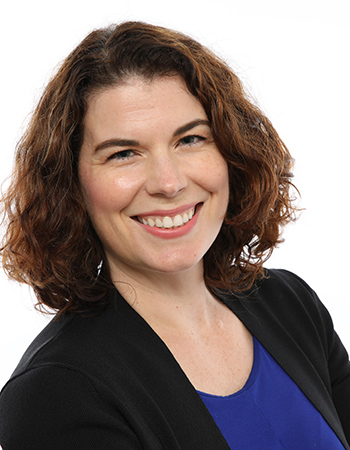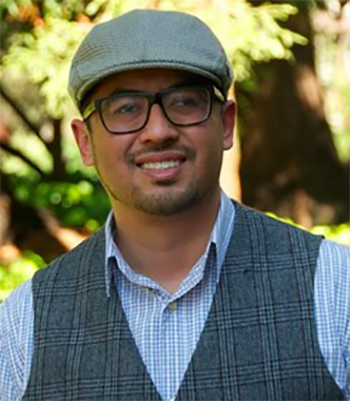As Supreme Court ruling on DACA looms, Berkeley is students’ steadfast ally
Campus's DACA recipients offered Immigration legal support, webinars, basic needs relief
June 16, 2020

Students from the UC system and across the nation rallied in front of the U.S. Supreme Court last Nov.12 in defense of DACA. That day, lawyers representing the UC and other plaintiffs presented oral arguments to the justices; a decision is expected this month. (UC photo by Scott Henrichsen)
Yet this month, the U.S. Supreme Court will decide if the Trump Administration acted unlawfully when it announced in 2017 that it would end the Obama-era Deferred Action for Childhood Arrivals (DACA) program, a U.S. immigration policy that provided a type of administrative relief from deportation to some 700,000 undocumented people who came to the U.S. when they were children. DACA status, which expires after two years and is subject to renewal, also has provided eligible young undocumented immigrants with work permits.
The DACA program has been kept in place since 2017 by federal court injunctions. One of the injunctions was won by lawyers representing the University of California and other parties. They appeared before the court to defend DACA and to argue that the Trump administration failed to follow the Administrative Procedures Act.
The UC system, with an estimated 4,000 undocumented students — about 1,700 of them DACA recipients — supports its undocumented students with academic and personal counseling, financial aid and legal advising. At UC Berkeley, with approximately 500 undocumented students, about half of them with DACA status. the Undocumented Student Program is a national model in higher education for best practices.
Berkeley News recently spoke with Gina Daly, UC Berkeley’s federal government director, and Fabrizio Mejia, assistant vice chancellor for student equity and success, who works closely with the Undocumented Student Program, about how the justices’ decision might impact DACA recipients in the UC Berkeley campus community.
Berkeley News: What would be the best outcome of the upcoming Supreme Court decision, for our students with DACA status, and what would be the worst?

Gina Daly, UC Berkeley’s federal government director, says DACA has been “a critical lifeline for these students, because it allowed them to study, work and pursue a career without fear of deportation.” (Photo courtesy of Gina Daly)
Gina Daly: The best outcome for UC Berkeley would be for the Supreme Court to rule that the Trump administration acted improperly when it attempted to rescind the DACA program. That would keep the DACA program in place until the administration follows appropriate procedures to end it.
The worst scenario would be a full rescission of the program by a date in the near future.
Even if the justices rule that the Trump administration did not follow proper procedures, officials could follow the Administrative Procedures Act and immediately begin the process of rescinding the program. In other words, if the Trump administration wants to eliminate it, it is only a matter of time before the DACA program is rescinded.
Many of our students with DACA status work, either on or off campus, and many of their families rely on them to contribute financially to the household. If DACA is terminated, what will happen to their jobs?
Fabrizio Mejia: If DACA were terminated, and once work authorizations are expired, students with DACA would not be able to keep their jobs, and this would affect them and their families financially. In addition to the financial impact, students and their families are worried about the Department of Homeland Security having their information and addresses — required when they applied for DACA — possibly making it easier to target them and their families for deportation.

Fabrizio Mejia, assistant vice chancellor for student equity and success, says the campus has and will continue to provide information and resources to ensure the safety and well-being of Berkeley’s undocumented students. (Photo by Steve Nguyen)
UC Berkeley is clear that work/internship/fellowship experiences are essential for all students, from both a financial and an experiential perspective. In other words, we have a responsibility to prepare students for their post-UC Berkeley endeavors (careers, graduate/professional school, etc.), as well as to ensure they have equitable access to meet their basic needs for food, housing and health services. The campus is preparing to implement initiatives, such as inclusive fellowships, to help DACA and un-DACA-mented students continue to have opportunities on campus. We will soon share more details on what these opportunities entail.
Gina Daly: We understand that the most likely scenario is that the ruling will allow DACA work authorizations to expire, rather than have a fixed date for the program’s end. Each student with DACA status would have a work authorization with a different expiration date, depending on when that person’s DACA status had been renewed. This scenario would give the campus, students and staff some time to prepare for the loss of DACA, depending on when each recipient’s authorization expires.
Could the justices’ decision lead to deportation for DACA recipients?
Gina Daly: The most likely scenario is that the decision will not lead to the immediate removal of DACA recipients, even if their work authorizations are terminated. The process of deportation and removal is a different legal process than losing work authorization.
What is our campus’s biggest concern, for these students?
Gina Daly: The DACA program was a critical lifeline for these students, because it allowed them to study, work and pursue a career without fear of deportation. The uncertainty of the current program and whether there is going to be a permanent solution to their immigration status makes it extremely difficult for these students and their families to make decisions about their futures. For some students and families, this may mean reevaluating whether staying enrolled in classes might be worth it if students may not be able to apply their degrees to jobs in the future.

Undocumented students at Berkeley and their supporters have held many demonstrations on campus to protest the Trump administration’s promises to deport undocumented immigrants. (UC Berkeley photo by Laurie Frasier)
If these students are deported, can they finish their Berkeley degrees elsewhere?
Gina Daly: Led by Graduate Division Dean Lisa Garcia Bedolla, there is a DACA working group on campus that is looking into avenues to allow undocumented students who are detained or deported to finish their degrees. We hope to have more information on that process soon.
Most of these students will need legal help. What can the campus offer them?
Fabrizio Mejia: Even if DACA is discontinued, all resources currently available to undocumented students on campus will continue. This includes the immigration legal support offered through the partnership between the Undocumented Student Program and East Bay Community Law Center. One-on-one consultations, as well as presentations and webinars, will continue to be offered to our students, so they can be informed about their rights and about different policies, as well as screened for eligibility for any type of relief.
Through the sharing of different resources with Know Your Rights information, as well as in-person and webinar presentations, the campus has and will continue to provide information to ensure the safety and well-being of our students. We also have staff prepared to take action, if a student is detained.
UC Berkeley also has staff members who are DACA recipients. What is it doing to help them?
Gina Daly: UC Berkeley has a small number of staff members with DACA status. The campus’s DACA working group is also investigating ways to help them if their work authorizations are terminated.
Much of our work with undocumented students and those among them who are DACA recipients on campus has become a model for other schools. What’s our goal, in leading the way?
Gina Daly: The Undocumented Students Program and all of the planning and protocols that UC Berkeley has put in place to support our DACA and un-DACA-mented students is recognized to be a national model. Working with colleagues across the country, we have shared our best practices about how to best serve the undocumented community and also how to prepare for the Supreme Court decision. We do this in order to be allies for all members of the undocumented community and also to help build ties with institutions across the country, whose help we will need to take legislative action on this issue.
We know that while we prepare for the end of DACA, we must also work with stakeholders across the country on a legislative solution for our undocumented community members and their loved ones.